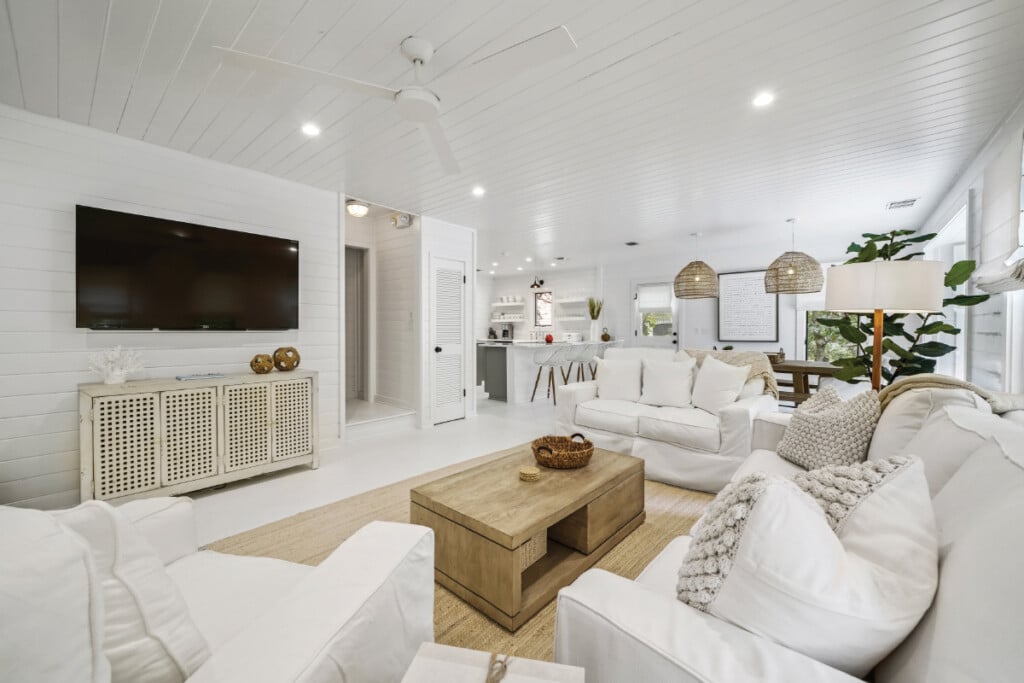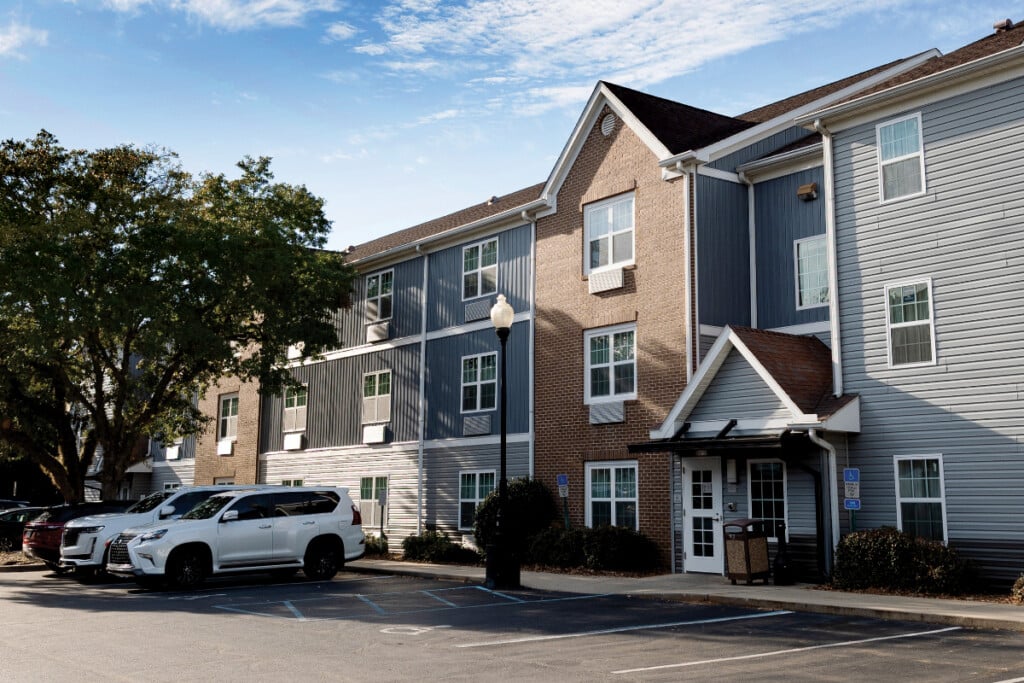Vacation Rental Resilience
As visitation dips, seasoned 30A rental pros adapt, align, and elevate to navigate the market correction

Tourism is Florida’s No. 1 economic engine, and in Walton County, it plays an especially pivotal role. The scenic 30A corridor is not just a beloved stretch of sugar-white sand and turquoise water; it’s also home to a tourism ecosystem largely built on vacation rentals. Unlike other destinations with an abundance of hotels, this market is predominantly made up of short-term rentals. Of the roughly 20,000 lodging units in Walton County, the vast majority are single-family homes, condos, or townhomes.
That means the health of the region’s tourism sector—and the broader economy—rests heavily on the shoulders of vacation rental operators.
“Tourism is the largest economic driver for Walton County,” says Matt Algarin, CDME, TMP, tourism director of Walton County Tourism. “We have to replace 10 to 15 percent of our visitors every year just through natural attrition. With more inventory entering the market annually, it’s more important than ever that operators elevate their game.”
To meet the expectations of discerning 30A visitors with household income of $175,000-plus, elevating the guest experience has become the name of the game in 2024. According to Walton County Tourism, visitation dropped 7.5 percent from 2023 to 2024, from 5,170,700 to 4,782,600 visitors. And while this dip follows a pandemic-era tourism boom, it marks a noticeable correction in the market.
“People are traveling again internationally, so it’s not surprising to see this normalization,” says Algarin. “But when you add thousands of new rental units to the market each year, supply starts to outpace demand.”
This surplus has fueled competition and sparked innovation. Among the most resilient players is Homeowner’s Collection, a property management company exclusive to Seaside, Florida. Founded in 2013, the company comprises 200 properties and is wholly owned by Seaside homeowners. General manager Amy Wise-Coble says the business model is unique in the U.S.
“Each homeowner purchases a share of stock and receives a membership credit annually based on company profits,” Wise-Coble explains. “Last year alone,we returned $650,000 to our members. That structure creates true alignment.”
Wise-Coble, a seasoned professional with three decades of experience, also helped launch the 30A Professional Operators Alliance, a collective of property managers representing over 2,500 homes. The alliance aims to encourage consistency, responsibility, and alignment among operators on 30A.
“We’ve tackled big issues like teen curfews during spring break, and we’re now collaborating with county leaders on waste management ordinances and short-term rental regulations,” she says. “If we want to maintain the integrity of 30A as a premier destination, we must act collectively.”
Cheryl Moodie, founder of The All Seasons Collection 30A in Rosemary Beach, knows the market intimately. A former Ritz-Carlton general manager, Moodie has spent the last 15 years curating a boutique portfolio of high-end properties in Rosemary Beach.
“We were spoiled post-COVID,” Moodie says. “Demand surged, prices surged, and owners got used to that. But the market has corrected. Guests are smarter, more price-sensitive, and have more options.”
Moodie says her company has weathered this correction by staying focused: “We don’t manage more than 40 homes. I stay exclusive to Rosemary. That allows us to check every home three times before a guest arrives. We’re relentless about quality.”
The experience of Jamie Potlock, a longtime visitor from Houston, Texas, underscores the importance of that quality. Potlock has been coming to the 30A area for more than 30 years and has been a loyal guest of The All Seasons Collection 30A for at least six.
“We would not stay anywhere else,” she says. Her loyalty to Moodie’s properties was cemented after a poor experience with another company left her family arriving late to a rental that was dirty and unprepared. A recommendation led her to Moodie. “She told me, ‘Give me 30 minutes,’ and the house we walked into was absolutely five-star,” Potlock recalls. “Every home she manages, I’ve offered to buy.”
Potlock says it’s the little things that keep her coming back—like a staff member delivering ice daily when an ice maker broke or quickly resolving Wi-Fi issues. “Cheryl just has true standards in her business, and she is consistent with those standards,” she says. “We’ve rented homes all over the world, and no one meets Cheryl’s level.”
Potlock typically visits two or three times a year, often with friends or family, and appreciates the area’s walkability and beauty. “The beach is gorgeous and has spoiled us for any other beach,” she says.
She also acknowledges the region’s growing pains. “There’s always some traffic, and we just avoid the July 4th week because it’s so busy. We prefer it quieter, and 30A is very walkable and bikeable, so it balances out.”
Both Moodie and Wise-Coble acknowledge that service is no longer just about clean sheets and clear instructions. It’s about delivering experiences.
“Today’s traveler expects more,” says Algarin. “Whether it’s access to beach gear, LSVs [low speed vehicles], or a private chef experience, operators must look beyond the house itself. They need to offer a lifestyle.”
Yet challenges persist. The beach access debate—fueled by the state’s customary use law—has created confusion among visitors. Private beach signs, social media misinformation, and shifting regulations have left some guests frustrated.
“Ironically, we’re not really having trouble getting guests to the beach,” Wise-Coble says. “It’s more of a PR problem. Confusion creates hesitation.”
Algarin agrees, “We’re commissioning a survey this spring to ask non-returning visitors why they haven’t come back. We think beach access may be part of it, but so is traffic, parking, and cost.”
Despite headwinds, the outlook remains optimistic. “I believe we’re entering a new normal, and that’s okay,” Moodie explains. “Those who adapt—who elevate the guest experience and communicate clearly—will endure.”
For the seasoned professionals shaping the future of 30A’s vacation rental market, this moment isn’t about survival. It’s about refinement. In the ever-shifting tides of tourism, it’s clear: Thriving in this market is about offering a total guest experience. Finding innovative ways to provide a taste of luxury with a side of adventure will attract more people to 30A. ▪




